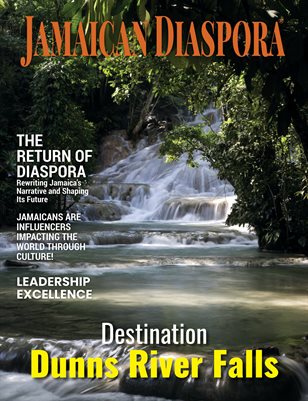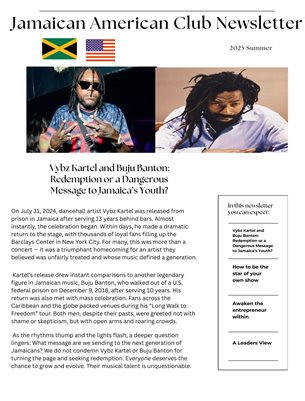On July 31, 2024, dancehall artist
Vybz Kartel was released from prison in Jamaica after serving 13 years behind
bars. Almost instantly, the celebration began. Within days, he made a dramatic
return to the stage, with thousands of loyal fans filling up the Barclays
Center in New York City. For many, this was more than a concert — it was a
triumphant homecoming for an artist they believed was unfairly treated and
whose music defined a generation.
Kartel’s release drew instant
comparisons to another legendary figure in Jamaican music, Buju Banton, who
walked out of a U.S. federal prison on December 9, 2018, after serving 10
years. His return was also met with mass celebration. Fans across the Caribbean
and the globe packed venues during his “Long Walk to Freedom” tour. Both men,
despite their pasts, were greeted not with shame or skepticism, but with open
arms and roaring crowds. But as the rhythms thump and the lights flash, a
deeper question lingers: What message are we sending to the next generation of
Jamaicans?
We do not condemn Vybz Kartel or
Buju Banton for turning the page and seeking redemption. Everyone deserves the
chance to grow and evolve. Their musical talent is unquestionable. But the
elevation of these men — as icons and symbols of resilience — speaks to a
larger cultural issue. At what point does admiration for talent blur into
glamorizing criminality and controversy?
Jamaican youth are watching. Many
of them are growing up in communities where crime, poverty, and limited
opportunities already weigh heavy. When they see imprisoned artists welcomed
back with stadium-sized adoration, are they learning that notoriety is just
another path to fame? The concern is not just about past actions — it’s about
the present messages embedded in much of today’s music.
Dancehall lyrics have become
increasingly vulgar, glorifying hypersexuality, materialism, and violence. Even
reggae, long considered the spiritual and conscious heartbeat of Jamaica, is
losing its footing to lyrics that mimic the very degeneracy it once stood
against. What happened to the class and craft that once defined Jamaican music?
There was a time when innuendo and metaphor ruled the dancehall.
Songs were cheeky, seductive, and
smart — they left something to the imagination. Reggae carried messages of
unity, struggle, and upliftment. Now, the envelope isn't being pushed, it’s
being torn open. Graphic content dominates, and much of it can’t even be played
on the radio.
This isn't just about taste — it's
about legacy. Jamaica’s music has always been a powerful export, shaping global
genres and inspiring movements. But what will the next generation inherit? A
culture that celebrates sensationalism over substance?
We can cheer for redemption while
still demanding better. Jamaican youth deserve more positive musical role
models — artists who create with integrity, who uplift as they entertain. The
industry has the power to shift the narrative, to encourage artistry that
reflects the richness of our heritage, not just the flash of the moment. It’s
time to bring back the balance. Let dancehall be vibrant, but not vulgar. Let
reggae be real, but not reckless. Let’s preserve Jamaica’s culture, not just
for today, but for the future.




